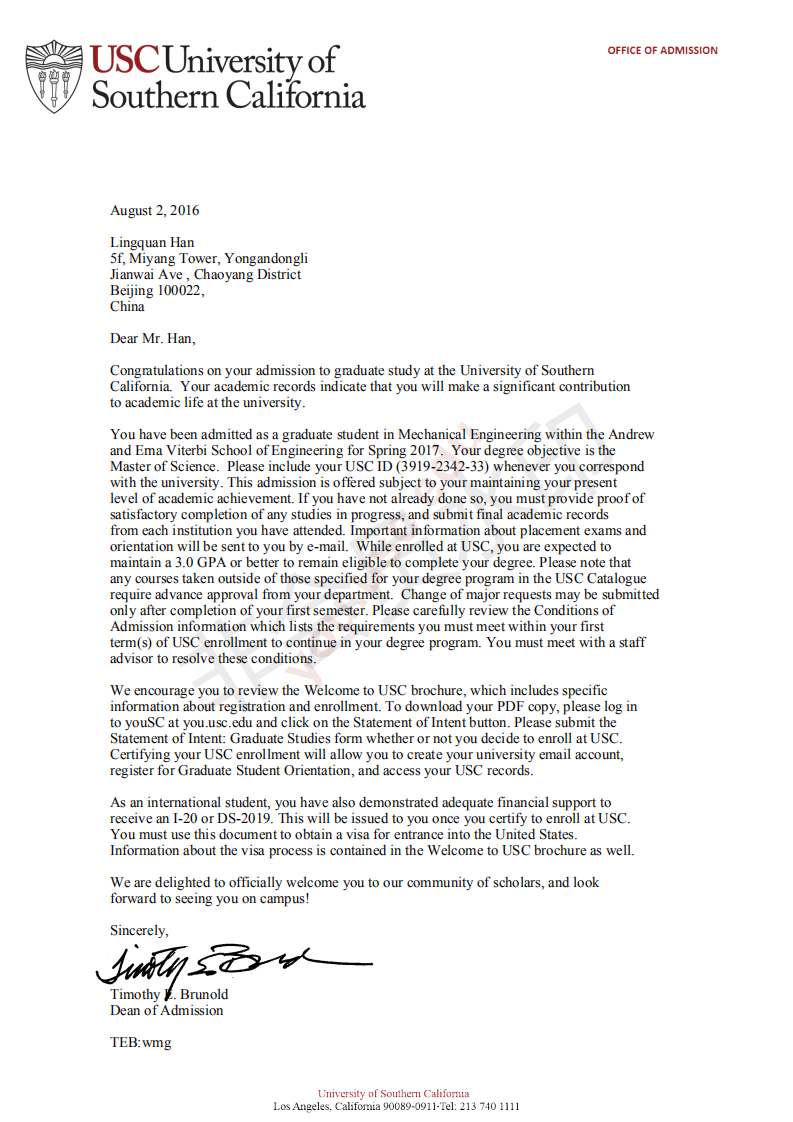SAT2美国历史词汇表: T.
2017-08-06 391阅读
大家一定要掌握关于SAT2美国历史的一些词汇,下面澳际小编为大家介绍以字母T开头的SAT2美国历史词汇表整理,词汇中涉及到了重要的历史事件、历史时期以及人物,非常全面,大家在复习SAT2美国历史时可以进行参考。
T
William Howard Taft
President from 1909 to 1913. Though handpicked by Roosevelt, he was not as enthusiastic about progressive rorm, and soon allied himself with the conservative wing of the Republican Party by raising tariffs. In doing so, he offended many Progressive Republicans, including Roosevelt, and precipitated a split in the Republican Party.
Taft-Hartley Act
The centerpiece of a congressional fort to restrict union activity. The Taft-Hartley Act of 1947 banned certain union practices and allowed the president to call for an eighty-day cooling off period to delay strikes thought to pose risks to national safety. Truman vetoed the measure, and though his veto was overridden, his actions roused the support of organized labor, a group crucial to his election victory in 1948.
Tallmadge Amendment
1819 amendment to the bill for Missouri’s admission to the Union. Proposed by Representative Tallmadge, the amendment sought to prohibit the further introduction of slaves into Missouri and would have mandated the emancipation of slaves’ children. The proposal was blocked by the Senate, but it sparked intense congressional debate over the balance of slave and free states. In 1821, Congress reached a compromise for Missouri’s admission known as the Missouri Compromise.
Roger B. Taney
Chi justice of the Supreme Court from 1836 to 1864. In support of slavery laws, he delivered the majority opinion on Dred Scott v. Sanford.
Tariff of Abominations
Name given by Southern politicians to the 1828 tariff because it seriously hurt the South’s economy while beniting Northern and Western industrial interests. Resistance to the tariff in South Carolina led to the Nullification Crisis.
Zachary Taylor
President from 1849 until his death in 1850. Taylor, a Whig, advocated popular sovereignty and in 1849 encouraged California to apply for statehood as a free state, thereby igniting the controversy that led to the Compromise of 1850.
Tea Act
Passed in 1773. The Tea Act eliminated import tariffs on tea entering England, and allowed the British East India Company to sell directly to consumers rather than through merchants. This lowered the price of British tea to below that of smuggled tea, which the British hoped would end the boycott. The British government hoped to use revenue from the Tea Act to pay the salaries of royal governors in the colonies, a plan that outraged many colonists and prompted the Boston Tea Party.
Teapot Dome scandal
Occurred when President Harding’s secretary of the interior, Albert B. Fall, secretly leased government oil reserves to two businessmen in exchange for a $400,000 payment. The scandal was exposed after Harding’s death in 1923, and came to symbolize government corruption.
Tecumseh
A Shawnee chi who tried to unite Native American tribes in Ohio and Indiana to thwart white settlement. His forces were deated in the 1811 Battle of Tippecanoe. Tecumseh later allied with the British during the War of 1812.
Tehran Conference
The first major meeting between the Big Three leaders. Held from November 28 to December 1, 1943, Churchill, FDR, and Stalin planned the 1944 assault on Vichy France and agreed to divide Germany into zones of occupation after the war.
Ten percent plan
Lincoln’s plan for Reconstruction in the South following the Civil War. The plan was more lenient than many members of Congress, especially the Radical Republicans, wanted—Southern states would be readmitted to the Union once 10 percent of the state’s voting population took an oath of loyalty to the Union and the states established new non-Confederate governments. Congress proposed its own, more punitive, Reconstruction plan with the 1864 Wade-Davis Bill.
Tenements
Narrow, four- or five-story buildings with few windows and limited electricity and plumbing. Housing mostly poor ethnic minorities and immigrants, tenements were common during the Industrial Age due to a dramatic increase in the urban poor population.
Tennessee Valley Authority (TVA)
Part of FDR’s New Deal. The TVA worked to develop energy production sites and conserve resources in the Tennessee Valley. It pumped money into the economy and completed a number of major projects, but eventually faced heavy criticism from environmentalists, advocates of energy conservation, and opponents of nuclear power.
Tet Offensive
A general offensive launched throughout South Vietnam by the Vietcong and North Vietnamese on January 31, 1968, the first day of the Tet, or Vietnamese New Year. Although the forces did not succeed in capturing the cities, they did cause widespread devastation, killing many thousands of American troops. The month-long attack led the American public to believe that victory in Vietnam was unattainable.
Thirteenth Amendment
Ratified December 6, 1865. The Thirteenth Amendment prohibited slavery in the United States.
Three-fifths clause
During the framing of the Constitution, Southern delegates argued that slaves should count toward representative seats, while the delegates of Northern states argued that to count slaves as members of the population would grant an unfair advantage to the Southern states in Congress. The result of this debate was the adoption of the three-fifths clause, which allowed three-fifths of all slaves to be counted as people.
Henry David Thoreau
A prominent transcendentalist writer. Two of his most famous writings are Civil Disobedience (1849) and Walden (1854). Thoreau advocated living life according to one’s conscience, removed from materialism and repressive social codes.
To Secure These Rights
A report issued in 1957 by Truman’s Presidential Commitee on Civil Rights. The report, titled To Secure These Rights, called for the elimination of segregation.
Tories
Colonists who disagreed with the move for independence and did not support the Revolution.
Townshend Duties
A popular name for the Revenue Act of 1767, which taxed glass, lead, paint, paper, and tea entering the colonies. The colonists resented that the act was clearly designed to raise revenue exclusively for England rather than to regulate trade in a manner favorable to the entire British Empire.
Trail of Tears
Despite the Supreme Court decision in Worcester v. Georgia, federal troops forced bands of Cherokee Indians to move west of the Mississippi between 1835 and 1838. Their journey, in which 2,000–4,000 of the 16,000 Cherokee died, became known as the Trail of Tears.
Transcendentalism
A spiritual movement that arose in the 1830s as a challenge to rationalism. Transcendentalists aimed to achieve an inner, emotional understanding of God rather than a rational, institutionalized one. They believed concepts such as absolute truth and freedom were accessible through intuition and sudden insight. Among the more prominent transcendentalists were the writers Ralph Waldo Emerson and Henry David Thoreau.
Transcontinental railroad
On May 10, 1869, the first transcontinental railroad was completed when the Union Pacific and Central Pacific railroads joined their tracks at Promontory Point, Utah. The railroad dramatically facilitated western settlement, shortening to a single week a coast-to-coast journey that had once taken six to eight months by wagon.
Transcontinental Treaty
Also known as the Adams-Onís Treaty. The Transcontinental Treaty was signed in 1819 between the U.S. and Spain. By the terms of the treaty, Spain ceded eastern Florida to the U.S., renounced all claims to western Florida, and agreed to a southern border of the U.S. west of the Mississippi extending all the way to the Pacific Ocean.
Treaty of Ghent
Signed on Christmas Eve in 1815. The Treaty of Ghent ended the War of 1812 and returned relations between the U.S. and Britain to the way things were bore the war.
Treaty of Greenville
Signed by 12 Native American tribes after their deat at the Battle of Fallen Timbers in 1794. The Treaty of Greenville cleared the Ohio territory of tribes and opened it up to U.S. settlement.
Treaty of Guadalupe Hidalgo
Ended the Mexican War in 1848. The treaty granted the U.S. control of Texas, New Mexico, and California. In return, the U.S. assumed all monetary claims of U.S. citizens against the Mexican government and paid Mexico $15 million.
Treaty of Paris (1763)
Ended the Seven Years War in Europe and the parallel French and Indian War in North America. Under the treaty, Britain acquired all of Canada and almost all of the modern United States east of the Mississippi.
Treaty of Paris (1783)
Signed in September 1783 and ratified by Congress in January 1784. The 1783 Treaty of Paris ended the Revolutionary War and granted the United States its independence. It further granted the U.S. all land east of the Mississippi River, and contained clauses that bound Congress to urge state legislatures to compensate loyalists for property damage incurred during the war, and to allow British creditors to collect debts accrued bore the war. The Treaty of Paris opened the door to future legislative and economic disputes.
Treaty of San Lorenzo
Signed with Spain in 1795. The Treaty of San Lorenzo granted the U.S. unrestricted access to the Mississippi River and removed Spanish troops from American land.
Treaty of Tordesillas
Signed by Queen Isabella of Spain and King John II of Portugal in 1494. The treaty divided all future discoveries in the New World between their respective nations. This soon proved unworkable because of the flood of expeditions to the New World and the proliferation of different countries’ claims to territory.
Treaty of Versailles
Signed in June 1919 at the end of World War I. President Woodrow Wilson had hoped for a generous peace settlement to promote democracy, peace, and liberalism throughout war-torn Europe instead of simply punishing the Central Powers. The treaty proved more vindictive against Germany than Wilson would have liked. It punished the Germans severely, forcing them to assume all blame for the war and to pay massive reparations. Other elements of the treaty included demilitarization of the west bank of the Rhine, the creation of new nations to grant autonomy to oppressed geographic and ethnic groups, and the formation of the League of Nations.
Triangular trade
A name for the trade routes that linked England, its colonies in North America, the West Indies, and Africa. At each port, ships were unloaded of goods from another port along the trade route, and then re-loaded with goods particular to that site. New England rum was shipped to Africa and traded for slaves, who were brought to the West Indies and traded for sugar and molasses, which went back to New England.
Tripartite Pact
Signed in September 1940 by Germany, Italy, and Japan. These nations comprised the Axis powers of World War II.
Harry S. Truman
Succeeded FDR as president after FDR’s death in April 1945. Truman served until 1953. Truman ordered the atomic bombing of Hiroshima and Nagasaki, and he proved instrumental in committing the U.S. to action against the threat of Soviet aggression in Europe during the Cold War. At home, Truman attempted to extend the New Deal policies of his predecessor in what he called the Fair Deal.
Truman Doctrine
In March 1947, Truman proclaimed bore Congress that the U.S. would support people anywhere in the world facing “attempted subjugation by armed minorities or by outside pressures.” The Truman Doctrine committed the U.S. to a role of global policeman.
Trust
A conglomerate of businesses that tends to reduce market competition. During the Industrial Age, many entrepreneurs consolidated their businesses into trusts in order to gain control of the market and amass great profit, often at the expense of poor workers and consumers.
Harriet Tubman
A former slave who helped establish the Underground Railroad, a network of safehouses and escorts throughout the North to help escaped slaves to freedom.
Mark Twain
A leading literary figure during the Industrial Age. Twain’s most famous books include The Gilded Age (1873), The Adventures of Tom Sawyer (1876), and The Adventures of Huckleberry Finn (1884).
John Tyler
Became president of the United States in 1841, when William Henry Harrison died after one month in office.
以上就是以字母T开头的SAT2美国历史词汇表整理介绍。接下来澳际小编还会连续为大家介绍其它SAT2考试词汇,希望大家持续关注。澳际小编祝大家都能取得优异的SAT2考试成绩!
SAT2美国历史词汇表: TSAT2美国历史词汇表:T(1)第二页大家一定要掌握关于SAT2美国历史的一些词汇,下面澳际小编为大家介绍以字母T开头的SAT2美国历史词汇表整理,词汇中涉及到了重要的历史事件、历史时期以及人物,非常全面,大家在复习SAT2美国历史时可以进行参考。
T
William Howard Taft
President from 1909 to 1913. Though handpicked by Roosevelt, he was not as enthusiastic about progressive rorm, and soon allied himself with the conservative wing of the Republican Party by raising tariffs. In doing so, he offended many Progressive Republicans, including Roosevelt, and precipitated a split in the Republican Party.
Taft-Hartley Act
The centerpiece of a congressional fort to restrict union activity. The Taft-Hartley Act of 1947 banned certain union practices and allowed the president to call for an eighty-day cooling off period to delay strikes thought to pose risks to national safety. Truman vetoed the measure, and though his veto was overridden, his actions roused the support of organized labor, a group crucial to his election victory in 1948.
Tallmadge Amendment
1819 amendment to the bill for Missouri’s admission to the Union. Proposed by Representative Tallmadge, the amendment sought to prohibit the further introduction of slaves into Missouri and would have mandated the emancipation of slaves’ children. The proposal was blocked by the Senate, but it sparked intense congressional debate over the balance of slave and free states. In 1821, Congress reached a compromise for Missouri’s admission known as the Missouri Compromise.
Roger B. Taney
Chi justice of the Supreme Court from 1836 to 1864. In support of slavery laws, he delivered the majority opinion on Dred Scott v. Sanford.
Tariff of Abominations
Name given by Southern politicians to the 1828 tariff because it seriously hurt the South’s economy while beniting Northern and Western industrial interests. Resistance to the tariff in South Carolina led to the Nullification Crisis.
Zachary Taylor
President from 1849 until his death in 1850. Taylor, a Whig, advocated popular sovereignty and in 1849 encouraged California to apply for statehood as a free state, thereby igniting the controversy that led to the Compromise of 1850.
Tea Act
Passed in 1773. The Tea Act eliminated import tariffs on tea entering England, and allowed the British East India Company to sell directly to consumers rather than through merchants. This lowered the price of British tea to below that of smuggled tea, which the British hoped would end the boycott. The British government hoped to use revenue from the Tea Act to pay the salaries of royal governors in the colonies, a plan that outraged many colonists and prompted the Boston Tea Party.
Teapot Dome scandal
Occurred when President Harding’s secretary of the interior, Albert B. Fall, secretly leased government oil reserves to two businessmen in exchange for a $400,000 payment. The scandal was exposed after Harding’s death in 1923, and came to symbolize government corruption.
Tecumseh
A Shawnee chi who tried to unite Native American tribes in Ohio and Indiana to thwart white settlement. His forces were deated in the 1811 Battle of Tippecanoe. Tecumseh later allied with the British during the War of 1812.
Tehran Conference
The first major meeting between the Big Three leaders. Held from November 28 to December 1, 1943, Churchill, FDR, and Stalin planned the 1944 assault on Vichy France and agreed to divide Germany into zones of occupation after the war.
Ten percent plan
Lincoln’s plan for Reconstruction in the South following the Civil War. The plan was more lenient than many members of Congress, especially the Radical Republicans, wanted—Southern states would be readmitted to the Union once 10 percent of the state’s voting population took an oath of loyalty to the Union and the states established new non-Confederate governments. Congress proposed its own, more punitive, Reconstruction plan with the 1864 Wade-Davis Bill.
Tenements
Narrow, four- or five-story buildings with few windows and limited electricity and plumbing. Housing mostly poor ethnic minorities and immigrants, tenements were common during the Industrial Age due to a dramatic increase in the urban poor population.
Tennessee Valley Authority (TVA)
Part of FDR’s New Deal. The TVA worked to develop energy production sites and conserve resources in the Tennessee Valley. It pumped money into the economy and completed a number of major projects, but eventually faced heavy criticism from environmentalists, advocates of energy conservation, and opponents of nuclear power.
Tet Offensive
A general offensive launched throughout South Vietnam by the Vietcong and North Vietnamese on January 31, 1968, the first day of the Tet, or Vietnamese New Year. Although the forces did not succeed in capturing the cities, they did cause widespread devastation, killing many thousands of American troops. The month-long attack led the American public to believe that victory in Vietnam was unattainable.
Thirteenth Amendment
Ratified December 6, 1865. The Thirteenth Amendment prohibited slavery in the United States.
Three-fifths clause
During the framing of the Constitution, Southern delegates argued that slaves should count toward representative seats, while the delegates of Northern states argued that to count slaves as members of the population would grant an unfair advantage to the Southern states in Congress. The result of this debate was the adoption of the three-fifths clause, which allowed three-fifths of all slaves to be counted as people.
Henry David Thoreau
A prominent transcendentalist writer. Two of his most famous writings are Civil Disobedience (1849) and Walden (1854). Thoreau advocated living life according to one’s conscience, removed from materialism and repressive social codes.
To Secure These Rights
A report issued in 1957 by Truman’s Presidential Commitee on Civil Rights. The report, titled To Secure These Rights, called for the elimination of segregation.
Tories
Colonists who disagreed with the move for independence and did not support the Revolution.
Townshend Duties
A popular name for the Revenue Act of 1767, which taxed glass, lead, paint, paper, and tea entering the colonies. The colonists resented that the act was clearly designed to raise revenue exclusively for England rather than to regulate trade in a manner favorable to the entire British Empire. 上123下
共3页
阅读全文留学咨询
更多出国留学最新动态,敬请关注澳际教育手机端网站,并可拨打咨询热线:400-601-0022
留学热搜
相关推荐
- 专家推荐
- 成功案例
- 博文推荐

Copyright 2000 - 2020 北京澳际教育咨询有限公司
www.aoji.cn All Rights Reserved | 京ICP证050284号
总部地址:北京市东城区 灯市口大街33号 国中商业大厦2-3层









陈瑶A 向我咨询
行业年龄 17年
成功案例 5146人
拥有大量高端成功案例。为美国哈佛大学、宾夕法尼亚大学等世界一流名校输送大批优秀人才。
齐亚楠 向我咨询
行业年龄 15年
成功案例 4070人
商科案例有哥伦比亚大学等,工科案例有麻省理工大学等,艺术案例有罗德岛大学等。
李君君 向我咨询
行业年龄 15年
成功案例 4157人
成功案例涉及美国排名前60的院校,专业涵盖商科(金融,会计,管理),工科(生物工程,化学工程,计算机科学,电气工程)等热门领域。
闫丽 向我咨询
行业年龄 19年
成功案例 6995人
成功办理了2000多名学生,申请到斯坦福大学、约翰霍普金斯、康奈尔等世界前30的名校。